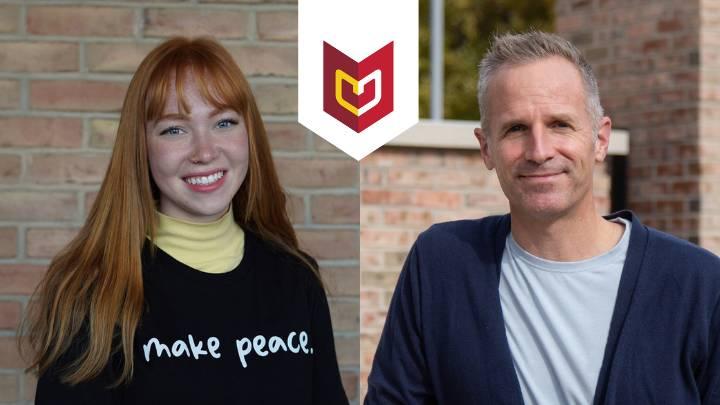Student-Faculty Research Informs Prison Education Nationwide

In 2015, Calvin University opened its second campus 30 miles to the east of its main campus at Handlon Correctional Facility. The intention then was to specifically target students who had life sentences, equip them with a formative education that results in a bachelor’s degree, so that they are equipped to bring change to the prison culture throughout the state of Michigan.
What Calvin didn’t know then was that more and more of their students inside prison would have an opportunity to re-enter society.
“With continued sentencing reform, with legislation for good time even reducing sentencing further, more and more Calvin students studying at Handlon will return and be on campus,” said Mark Mulder, one of the many professors at Calvin who has taught classes for the Calvin Prison Initiative, a partnership between the university, Calvin Theological Seminary, and the Michigan Department of Corrections.
Some have already returned to finish their degree in Grand Rapids. And while their education has formed them as people, the barriers they’ve faced in reacclimating have presented major challenges.
Revealing research
In January 2023, then senior Emily Steen ’23 and her faculty adviser Mark Mulder, received The Hatfield Prize to conduct research on these challenges faced by formerly incarcerated individuals upon reentry into society, including barriers to housing, employment, and social integration due to their criminal record.
This past week their research was published by the Center for Public Justice. It highlights that reentry care should be an integral part of prison education programs, emphasizing the need for collaboration between government and various institutions to support returning citizens effectively.
“The work Emily has done will help us as an institution think about how we can do this better,” said Mulder. “It gives us guidance on how to do this and provides a template for other institutions as well.”
Ripple effects
Mulder and Steen realize that whatever Calvin puts into practice will likely have ripple effects. After all, the Calvin Prison Initiative program is considered a national model for prison education.
“More and more universities are watching what Calvin is doing and how successful we are going to be,” said Mulder.
“As prison education programs continue to expand under the Pell grants for prisoners’ legislation, local universities, churches, and community members must consider the importance of reentry care networks as they welcome returning students and graduates. I hope this report illuminates the necessity of reentry care for universities interested in adding prison education programming.”
Emily Crouch, program director of shared justice at the Center for Public Justice, emphasized the contribution Steen and Mulder’s research makes in this moment.
“In this report, Emily Steen asks the question: am I my brother’s keeper? Her report considers the role that Christian citizens, churches, employers, government and even Christian universities and colleges should have in assisting formerly incarcerated persons with reentry. And, she finds that yes, each of these groups has something to contribute,” Crouch said. “Emily’s passion for serving incarcerated and formerly incarcerated neighbors is evident in this report. Through her research and conversations with the Calvin Prison Initiative (CPI) and returning citizens she provides practical recommendations for CPI and other Christian institutions connected with higher education programs for incarcerated individuals.”






